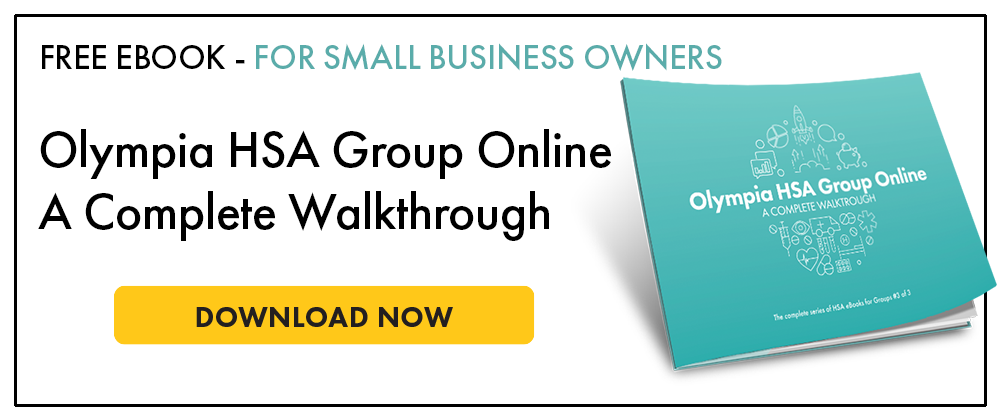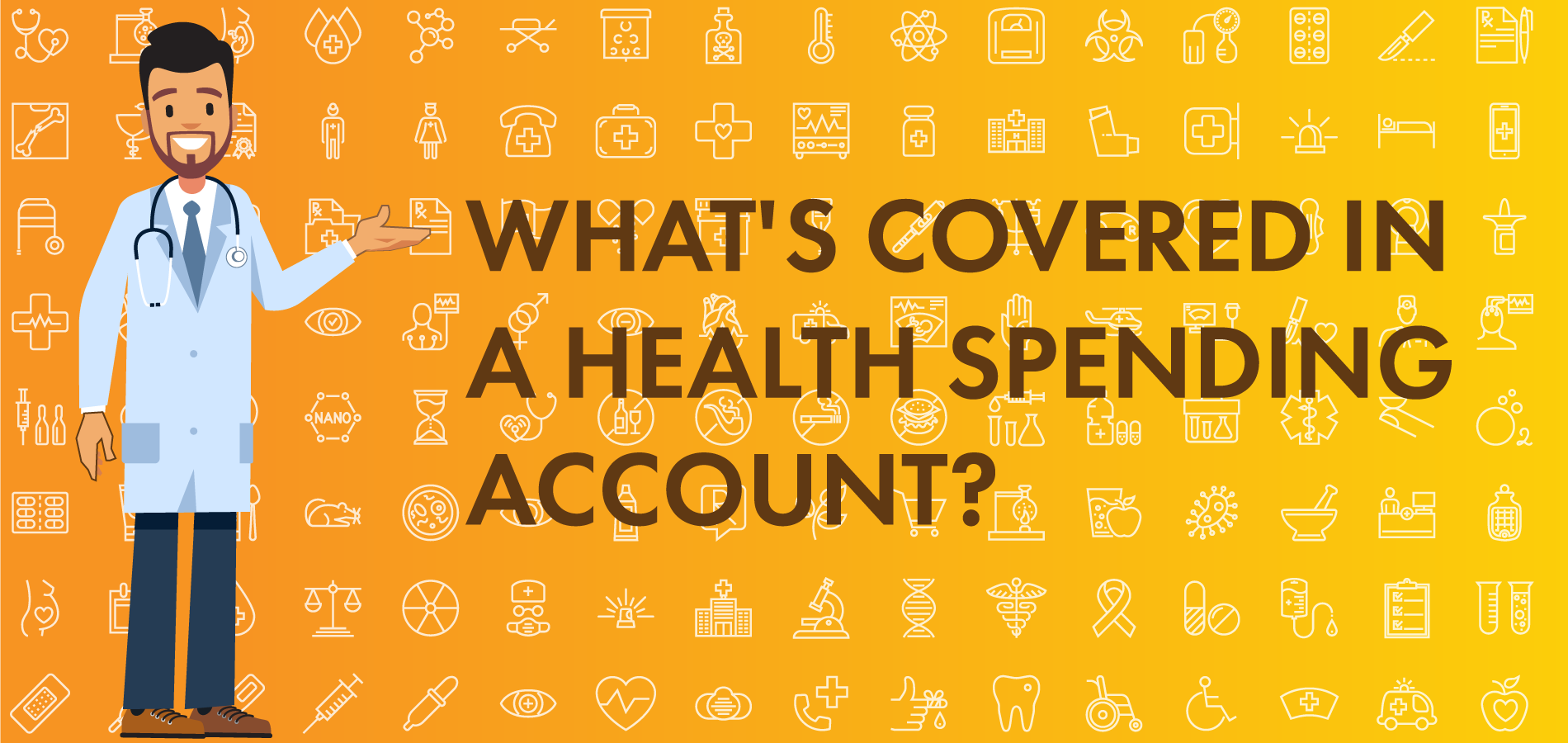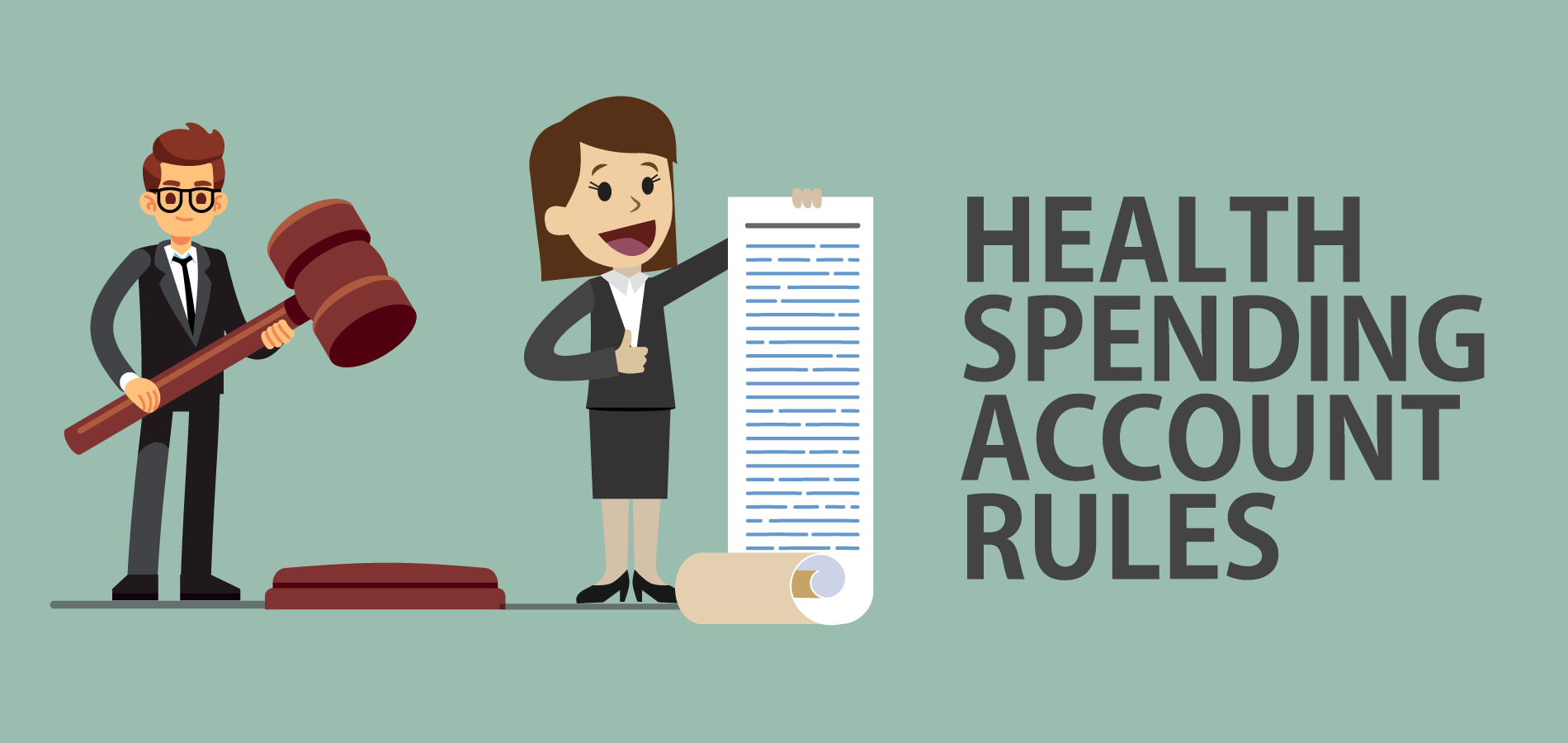The Top 24 FAQ's for Employee Benefits Packages for Small Business
I've been involved with the financial services industry since 1991. Over the past 25+ years, I have interacted with thousands of small business owners. Here are some of the most frequent questions that I am asked concerning employee benefits packages for small business and their staff.
TABLE OF CONTENTS
Browse by Chronological Order
(Click a question to be directed to its answer)
- What is a benefit?
- What is health insurance?
- Why do I feel that we aren't getting value from our current insurance plan?
- What's the difference between an insurance plan and a HSA?
- How does a HSA compare to health insurance?
- What are the top two advantages of an HSA compared to health insurance?
- What would be an ideal set up for my company and employees?
- What's covered under an HSA?
- Do employees contribute?
- Do I have to deposit all the money for the employee HSA limits up front?
- What about drug coverage?
- Why can’t I just pay my employees for their health and dental bills?
- Is the benefit paid out under an HSA taxable?
- Can you pay as you go?
- Does an HSA create an immediate expense for my business?
- Do we have to include all employees?
- Can different employees have different benefit limits?
- What happens to the limit if my employee doesn’t use it?
- What happens to the employer money in the employer funding account, if the employee does not use it during the plan year?
- What is a benefit plan year?
- What's a claims funding account?
- Can the HSA limit for shareholders be unlimited?
- Can I close the plan anytime?
- If I close the plan, do I get a refund of unused funds?
1. What is a benefit?
I’ve found this question easier to answer by understanding what a benefit is not. Employees paying a premium in a traditional ‘insurance plan’ is not a benefit. The online dictionary defines a benefit as “an advantage or profit gained from something”. Employees recognize this, which is one reason for low employee participation in a premium plan. If I must pay for a benefit, it’s not a benefit.
With a Health Spending Account (HSA), there are no premiums. The employer decides how much is available to put into a benefit plan. Benefits are based on budgets and what the employer would like to provide in the way of benefits for themselves and their employees. A HSA can be thought of as a bucket of money provided by the employer to the employees. The employees use their individual benefits bucket to claim all their health and dental bills, up to their benefit bucket limit, set by the employer.
The employer is also included and makes use of the plan the same way, assigning their own benefit bucket limit. Claim reimbursements paid out of the benefit buckets to employees are tax-free. The payout to the employee is a pre-tax expense for the employer. The employer does not pay anything until the employee claims from their benefit bucket. This makes a HSA easy to understand, with all of the benefit available when and where it's needed by the employee and their dependents.
2. What is health insurance?
To answer this question, we need to define insurance. An online dictionary I found defines it this way: “Insurance is coverage by contract whereby one party undertakes to indemnify or guarantee another against loss by a specified contingency or peril.” The online dictionary’s definition of peril is “serious and immediate danger".
In laymen’s terms - insurance is the transfer of risk away from the person to an insurer in exchange for a premium. The insured agrees to pay the premium in exchange for the promise to be reimbursed by the insurer if the unplanned event or peril happens in the future. Fire insurance on your home is a good example of the need for insurance. For most Canadians, the loss of a person’s home to fire is a catastrophic financial event.
In Canada, health insurance is provided by provincial governments. For example, the cost of doctor visits, hospitalization, surgery and medical treatment for accidents and illness is provided for and paid by the province in which a person lives. In that respect, if you’re Canadian, being treated for a catastrophic health event caused by an accident or sickness is provided and paid for by your provincial government. This includes the cost of many drugs and drug therapies to treat illnesses and ailments.
The residual risk or ‘peril’ from an accident or illness is the interruption of income. Income replacement insurance or disability insurance and critical illness insurance replaces the lost income and provides immediate financial support. If the person dies, life insurance replaces the lost income for surviving dependents and family.
Health and dental services falling outside of the above risks, such as chiropractor, massage therapy, naturopathy, physiotherapy, dental, vision etc. and occasional prescription drug expenses are not financially catastrophic. They are not health insurance events.
3. Why do I feel that we aren't getting value from our current insurance plan?
That can be common sentiment with employee benefits packages for small businesses that are built around traditional insured health and dental plans. The premium paid by the employer for the employees, can be looked at as the employer’s budget for benefits for the year. I’ll refer to that budget as your ‘benefits budget bucket’.
Instead of paying it out monthly as a premium and losing control of it, you could instead allocate it to employees – directly, using a HSA plan. This smaller ‘employee bucket’ is assigned to employees from the employers benefit budget bucket. The employees decide when and how to use their individual benefit buckets for themselves and their families.
A HSA better meets the need of employees as follows:
- transfers the value from the employer to the employee directly
- it is easy to understand and use
- The value of a HSA is never lost in a premium to the insurer
- There’s no expense for the employer until a claim is made by the employee for an eligible health or dental bill
- When the employee claims, they’re reimbursed directly for 100% of the claim, tax-free, up to their benefit bucket limit
- The employee can claim all their health and dental bills as needed. See the list of eligible expenses here.
The employer also makes use of the plan, setting their own benefit bucket limit for themselves and their family. The employer limit can be set high enough to pay all their health and dental bills during the year. With an HSA, you have full control over your benefit budget without losing value in a premium.
4. What's the difference between an insurance plan and a HSA?
Please be aware that health and dental benefits are not insurance events. To understand, consider the difference between a planned maintenance event and unplanned event such as an accident.
Let's use an auto or home insurance policy as an example to clarify. We buy auto and/or home owners insurance to insure for an unplanned catastrophic financial event. If you have an accident and your new car is a total loss, your auto insurance policy replaces the car. This has the effect of returning you to the position you were in (or as close as is possible) before the accident that destroyed your car. The same holds true if a fire destroys your home. Therefore, it can be said that we pay insurance premiums to protect ourselves from a potentially catastrophic financial loss occurring from an unplanned event.
At the same time, we know that planned maintenance – cleaning the car, changing the oil or replacing worn out tires, are events paid by the person that owns the car. It's the same for the homeowner, windows must be cleaned, furnace filters changed and leaky water heaters or roofs repaired or replaced. We don't insure these maintenance events – although it might be a good idea to plan for their occurrence by setting aside a rainy-day fund.
Insurance is the process of transferring the risk of a financially catastrophic unplanned event to an insurance company. Maintenance can be summed up as planned events and unplanned (leaky hot water tank) and day to day expenses that are part of owning the car and the home.
Consider health and dental events. Going to the dentist, eye examinations, eye glasses, contact lenses, the chiropractor, the massage therapist, the orthodontist and physiotherapy are health maintenance events. Some are planned and some are unexpected. But they are not catastrophic accident events. They’re in the same category as the car and house maintenance events.
Why then do we talk about insuring health and dental events? Health and dental ‘insurance’ is sold by insurance companies to market high cost, high margin, low value employer health and dental benefit plans.
5. How does a HSA compare to health insurance?
A HSA provides tax-free funds that employees use to pay for maintenance events (chiropractor, massage therapy, naturopathy, physiotherapy, podiatrist, dental, vision and occasional prescription drug etc.) that they incur. Employers only pay when a claim is made, there are no premiums, and the employer can customize a plan to suit their needs.
Health insurance under a private, traditional insured plan provides specified dollar amounts that are listed in a schedule of benefits. Employers pay a premium regardless of plan usage, coverage is restricted in a number of ways, and costs increase beyond the employer's control.
Remember, in Canada, trauma and treatment from catastrophic medical emergencies and accidents are covered and paid by provincial government health insurance. Maintenance events are not health insurance events. The concept of needing to buy health insurance for day to day maintenance events is a marketing fabrication by insurance companies.
6. What are the top two advantages of an HSA compared to health insurance?
- Unlike a traditional premium paid plan, an HSA is a flexible benefit directed by the employee. All eligible health and dental claims are reimbursed up to the HSA limit set by the employer.
- A HSA cannot exceed the employers budget for benefits. It’s the employer that sets the limit for the employee spending accounts. Employee claims are paid up to the pre-determined limit. There are never cost overruns with a HSA and there is no cost for the employer until the employee files a claim. In a traditional benefit plan – a premium is paid monthly regardless of employee claims. Future premiums and cost increases are unknown and remain outside the employers control. The value of the benefit intended for the employee is lost in the premium.
7. What would be an ideal set-up for my company and employees?
An ideal set-up is allocating the employer’s available health and dental 'benefits budget' to an employee HSA. A HSA ensures that funds which are earmarked for employee health and dental benefits are received by the employee, not lost in a premium.
A HSA puts the benefit dollars into the employee’s hands. The employee and family then decide where and when to use the money as needed. This provides budget certainty for the employer and flexibility and choice for the employees. In many cases, not all benefit dollars are used resulting in savings for the employer.
By contrast, a traditional insured plan takes the decision of how and where to use the benefit provided by the employer away from the employee. Once the premium is paid, the value is lost. Not all employees use the plan and those who do have to deal with low limits, high co-payments and denied claims for items that are not on the insurer’s list of approved benefits.
Traditional plans add in other complexities and restrictions such as deductibles, dental fee guides, dental recall limitations and low coverage limits on items that can be claimed. The traditional plan removes the employee from the decision-making process.
The result is an inefficient, low impact, high cost plan with no choice for the employee and the inability to control prices and stay within a budget for the employer.
Note: The amount an employer should allocate to the HSA depends on many factors and is largely up the discretion of the company itself.
8. What's covered under a HSA?
A HSA can be used for all health and dental services including vision, prescriptions and paramedical expenses such as massage therapy, physio therapy, chiropractic, naturopathy, acupuncture etc. Here's a link to the official list of what's covered.
9. Do employees contribute?
There are no employee contributions with a HSA. Employees pay for their health and dental bills, then file a claim for reimbursement up to the limit set by the employer. Health and dental bills exceeding the employee HSA limit are paid out-of-pocket by the employee.
Employees should not contribute to the HSA funding with their own money due to tax complications. This effectively eliminates the tax-free benefits of using an HSA in the first place. Only the employer should contribute to the HSA funding.
10. Do I have to deposit all the money for the employee HSA limits up front?
In most situations, there’s an initial deposit by the employer to establish a claim funding account balance. That deposit is usually 20% of the annual employee spending account limits. The remainder of the HSA limits are paid in monthly deposits spread over the balance of the plan year. The administrator pays claims from the funding account as they're incurred. If a funding shortfall occurs, the employer is notified to top up the funding account.
11. What about drug coverage?
All prescription drugs can be claimed under an HSA. The respective provincial drug plans should be used to pay for high cost or excessive prescription drug costs. A HSA can be used to pay the deductible portion of prescription drugs for employees that require the provincial plan.
12. Why can’t I just pay my employees for their health and dental bills?
Direct payments from an employer to an employee are a taxable benefit. A HSA, technically called - A Private Health Services Plan – must meet specific rules under the income tax act to be a tax-free benefit. A professional administrator manages all aspects of the benefit plan such as: reimbursing employees, handling employee and dependent inquiries and questions, maintains claims records, manages benefit limits and adjudicates claims. A professional administrator ensures the integrity of the plan and privacy of information between the employer and the employee.
13. Is the benefit paid out under a HSA taxable?
The benefit paid from the employer to the employee under a HSA plan are tax-free. Reimbursements must be for eligible health and dental expenses and follow the rules as set out in the income tax act. The administrator ensures the plan meets the technical requirements so that the benefits paid to employees remain a tax-free benefit.
14. Can you pay as you go?
A HSA is a 'pay as you go plan' unlike an insured plan where a premium is paid monthly. Premium paid insurance plans create a value gap in which the benefit intended for the employee is lost in the premium. The employee has no ability to control the intended benefit. With a HSA, the employee is able to direct the benefit to meet their individual and family needs. There's no cost to the employer until the employee files a claim for a benefit they've used. A HSA ensures that the full value of the benefit flows from the employer to the employee.
15. Does a HSA create an immediate expense for my business?
With an insured plan, premiums are paid and expensed each month regardless if there are employee claims. Not all employees use the benefit plan and not all benefits claimed are paid by the insurer. This value trap is a perpetual problem with insured health and dental benefit plans – premiums are paid and value is lost.
With a HSA, the employer sets the limit and does not incur an expense until the employee claims a reimbursement for a paid health or dental bill. This direct to employee, tax-free benefit, is then expensed by the employer. A HSA creates a balanced relationship between the needs of the employee and the cost of benefits provided by the employer.
16. Do we have to include all employees?
There is no requirement to include all employees with a HSA benefit plan. If the plan includes only shareholders and excludes all full time non-shareholder employees, then the benefit received by the shareholder would be considered a taxable shareholder benefit. To ensure benefits remain tax-free under an HSA plan, the employer must include at least one class of full-time employee. The annual HSA limit for the full-time employee classification must be reasonable in relation to the shareholder's annual HSA limit. A rule of thumb to define ‘reasonable’ is 10% of the highest shareholder limit.

17. Can different employees have different benefit limits?
Yes, the employer can set different benefit levels for different employees, by naming different classifications. Employee classifications can be the same for all employees or varied as required.
A HSA makes it easy for an employer to be creative and specific by using different classes for different employees. For example: the annual HSA limit for a General Manager supporting a family may need to be higher than a newly hired customer service representative with no dependents. A few examples of classifications are: tenure, occupation, number of dependents or as a percentage of the employee's annual income.
18. What happens to the limit if my employee doesn’t use it?
If the employee benefit is not used by the end of the plan year, their limit expires. HSA limits can be reset annually (expire) or they can be rolled over for one plan year, allowing the employee to use unused limits in year two. If the benefit is not used by the end of year two, it expires. This is an employer decision that can be changed annually at the beginning of the plan year.
19. What happens to the employer money in the employer funding account, if the employee does not use it during the plan year?
Unused money leftover at the end of the plan year rolls forward into the next plan year to fund future claims. Surplus money in the claims funding account is refunded to the employer upon request.
20. What is a benefit plan year?
A benefit plan year is the day the plan begins, ending 365 days later. Example: you start your HSA plan April 10th. The plan year will end April 9th the following year. The plan year end is also the date that benefit limits are reset each year or unused balances are rolled over for one plan year. The plan year end is also the time to review and change HSA limits for the upcoming plan year.
21. What is a claims funding account?
A claims funding account is a ‘bucket’ of money provided by the employer and held by the plan administrator. The administrator draws from this ‘bucket of money’ to reimburse employee health and dental claims.
22. Can the HSA limit for shareholders be unlimited?
A reasonable limit for shareholders is a pre-requisite to ensure the benefit paid out remains tax-free under the income tax act.
23. Can I close the plan anytime?
A HSA can be terminated by the employer at any time at no cost. If possible, notice should be given to employees to allow a reasonable time to claim existing health or dental receipts incurred before the plan is officially closed.
24. If I close the plan, do I get a refund of unused funds?
After the plan is closed, residual money in the claim funding account is refunded to the employer. Excess funds in the claim funding account are refunded to the employer, anytime upon request.
Get a complete walk-through on how an HSA can help your business:
Or if you're ready to sign up --> Get simple step-by-step instructions on setting up your HSA
To continue your employee benefits research, check out these related articles:
What employee benefits should you offer?
What employee benefits do millennials want?
Don't fall for these 7 employee benefits myths
Learn how to survey your employee benefits in 7 simple steps
Top 5 Pitfalls when choosing employee benefits for small business
The 7 Step Process to unbeatable employee benefits
Employee benefits vs. Independent contractor
How do employee benefits work?
Learn more about a Health Spending Account
Learn more about a Health Spending Account
Are you an incorporated business owner with no employees? Learn how to use a Health Spending Account to pay for your medical expenses through your corporation:

Do you have a corporation with employees? See why a Health Spending Account makes for great employee benefits:






